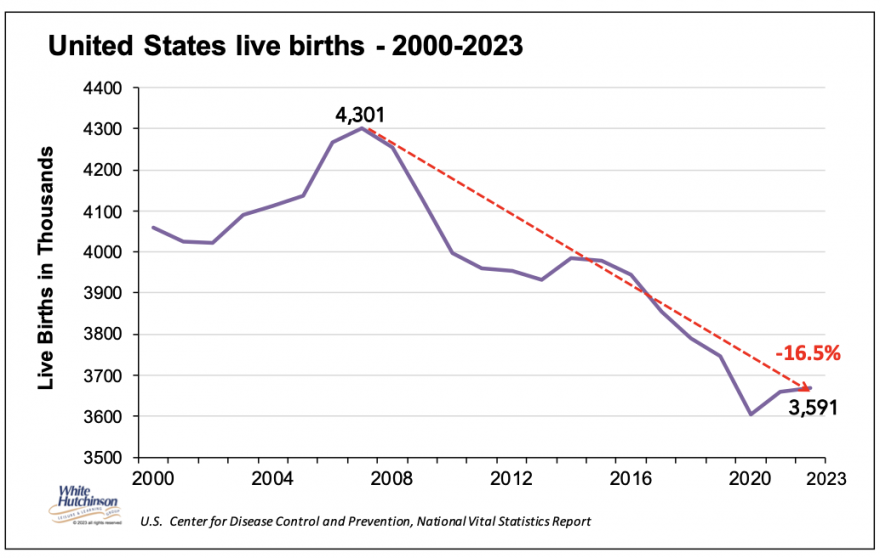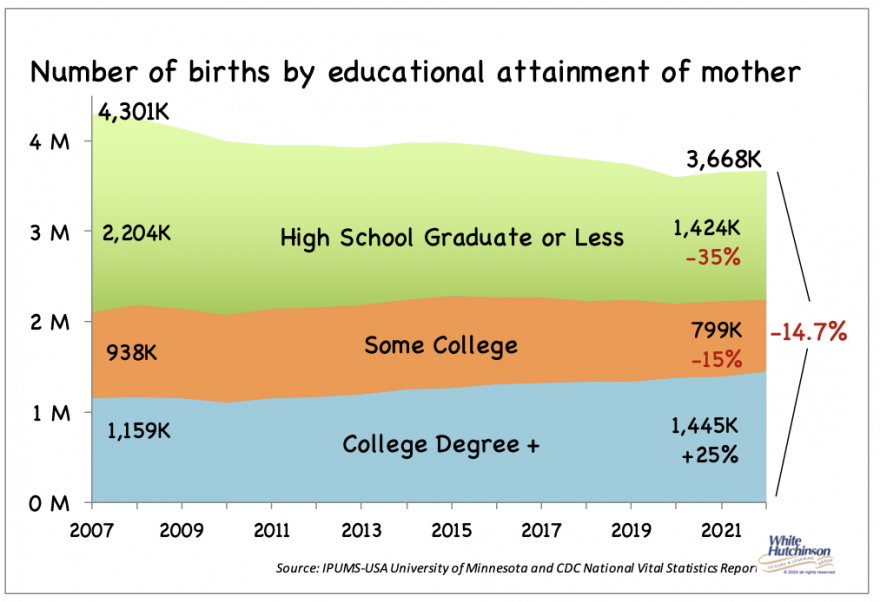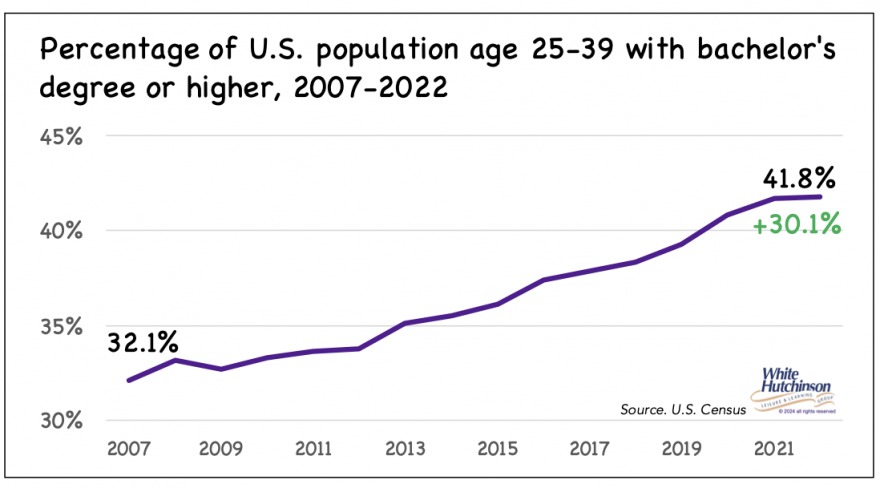
Vol. XXIV, No. 3, May-July 2024
- Editor's corner
- Current projects
- Motivations that influence people's choice of where to visit
- Construction cost barrier for new centers
- How and why consumer drinking habits have changed since the pandemic
- Births continue their decline
- What's driving young adults' food choices
- No, the family market is not the largest target market
- Attraction Net Promoter Scores
Births continue their decline
The CDC has reported that the number of births in the United States in 2023 was 3,591,328, down 2% from 3,661,220 in 2022. This is a continuation of a long-term decline in births that began in 2008. Since 2007, births have declined by one-sixth (-16.5%). In 2023, 710,000 fewer children were born than in the peak year of 2007.

This trend, which is projected to continue, does not bode well for location-based entertainment, play, and cultural venues that target children or families with children. But often, macro trends don't tell the whole story. Usually, the truth is in the details. So, we dug into the data to see if it revealed anything not apparent at the macro level.
We found an interesting trend when we analyzed the educational attainment of mothers giving birth. The number of births for mothers with less than a bachelor's degree has been on the decline. In contrast the number of births for mothers with a bachelor's or higher degree has been increasing.

Since 2007, the year of the peak birth rate, non-bachelor's+ mothers' births declined by 919,000, nearly one-third, while there was an increase of 283,000 babies for mothers with a bachelor's degree or higher. Mothers with a bachelor's degree+ have grown from 27% of all births in 2007 to 39% in 2021.
This trend correlates with the growing percentage of the population with bachelor's degrees. Adults aged 25-39 with a bachelor's+ degree, the primary age range of mothers giving birth (74% of all births), has grown from 32% in 2007 to 42% in 2022.

So, what at first appears as lousy news for location-based entertainment, play, and cultural venues that target children or families with children is actually not so bad. It may be positive as households with a bachelor's or higher degree adult account for the lion's share, over three-quarters of all spending (76%) for fees and admissions to entertainment venues such as theme parks and location-based entertainment venues (LBEs), including children's and family entertainment centers, and to cultural venues that include children's museums.
So, the growth in births to mothers with a bachelor's+ degree has probably more than offset the declining number of families with less than a bachelor's degree who account for a minor segment of spending at LBEs and cultural venues
Implications:
The bottom line is that although the number of births, and thus the number of young children, is on the decline, we are seeing a gentrification of families with young children, as a greater and greater share and number of births is occurring to bachelor's+ mothers that represent the lion's share of spending on out-of-home entertainment and art venues. This is positive news for LBEs and cultural venues that target children or families with children.
Subscribe to monthly Leisure eNewsletter
Vol. XXIV, No. 3, May-July 2024
- Editor's corner
- Current projects
- Motivations that influence people's choice of where to visit
- Construction cost barrier for new centers
- How and why consumer drinking habits have changed since the pandemic
- Births continue their decline
- What's driving young adults' food choices
- No, the family market is not the largest target market
- Attraction Net Promoter Scores


